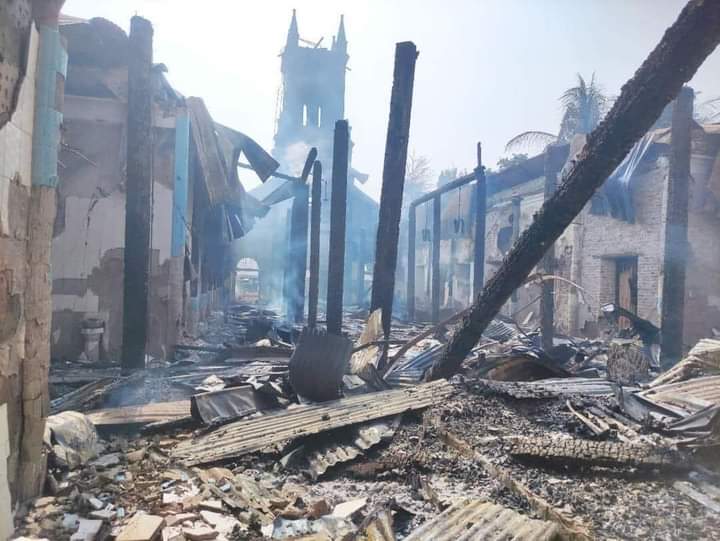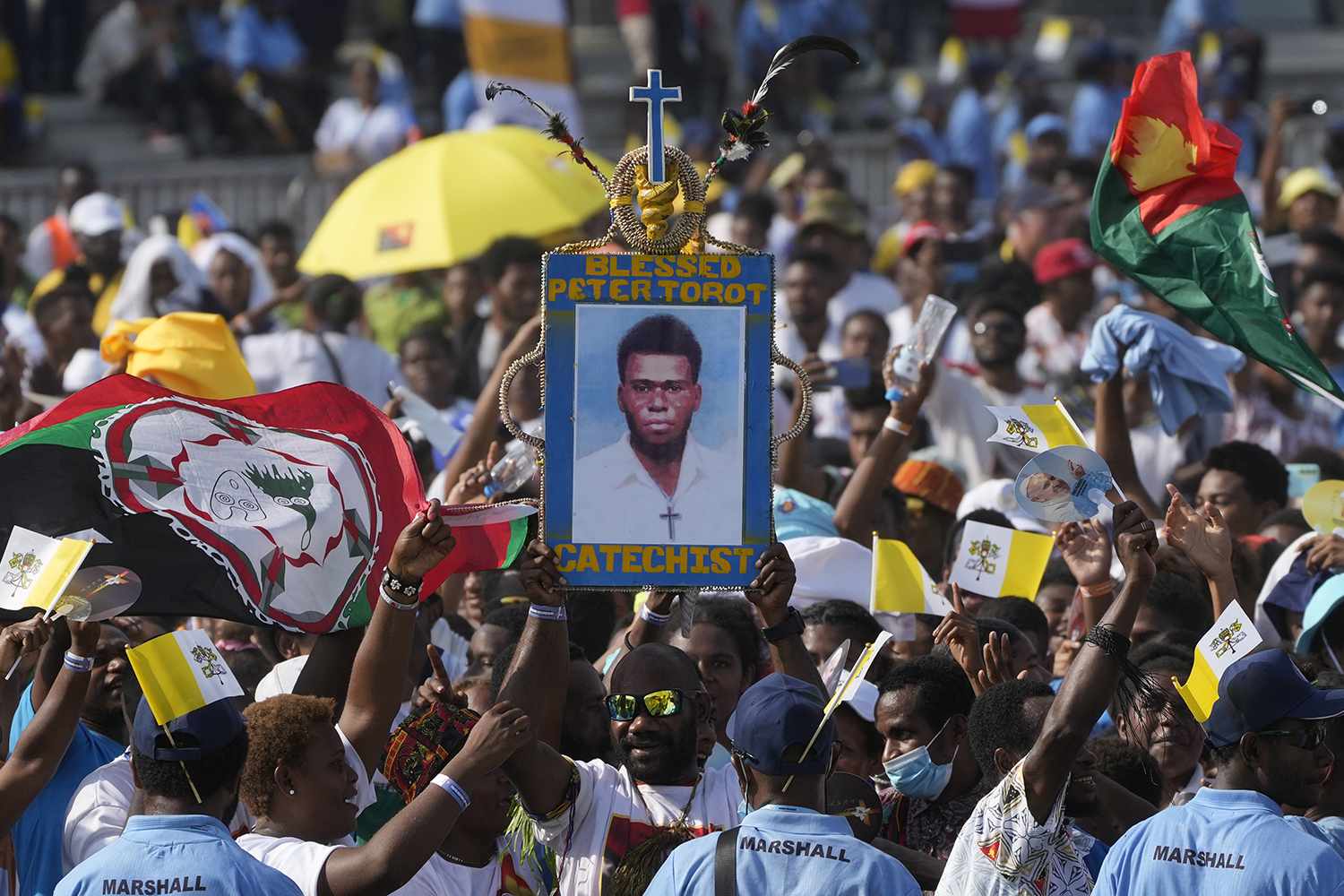Joaquim Magalhães de Castro
On the day that a priest from the Bayingyi community (of Portuguese origin) releases new evidence of acts of violence and persecution against his people by the Burmese military – in this case, the total destruction of the church in one of the villages where they live, in Mandalay region, in the north of the country – a direct appeal is made in Yangon, in the name of the Catholic religion, for an end to the conflict.
Speaking to Fides Agency, Joseph Kung, a layman in charge of a private university institute, calls for an “immediate laying down of arms” and the search for a peaceful resolution. “Many people are suffering from this conflict. It is necessary to create humanitarian corridors that allow local and foreign non-governmental organizations to help these people,” he said.
Joseph Kung’s statement reflects well the feelings and desires, not only of Catholics but also of many other citizens of other confessions in this country, tormented by a civil war that has lasted for almost two years. Since the coup d’état on February 1, 2021, when the democratically-elected government of the National League for Democracy was overthrown by the military, several resistance movements have maintained an open confrontation with the usurpers.
Joseph Kung’s appeal for peace is addressed not only to the State Administration Council (SAC), i.e. the military junta, but also to the Government of National Unity (NUG), currently in exile, and to the Popular Defense Forces (PDF), a spontaneous movement of civilians who refuse to accept the coup d’état. Meanwhile, it is urgent to alleviate the suffering of millions of people forced to flee their homes and seek precarious shelters.
Numerous Burmese Catholics spent Christmas as refugees in camps set up on the initiative of parishes and Karuna (as Caritas Burmese is called). Many of them are scattered throughout the forests, living in makeshift tents in order to avoid fighting, thus preserving the lives of the elderly, women and children. Tension and fear mark everyday life in areas where clashes are more violent.
Of particular note are the states inhabited mainly by Christian ethnic minorities, such as the Kachin, the Kayah, the Karen, the Chin and also the Bayingyis. All these faithful tended to seek solace and refuge in churches and chapels. However, very soon these – and the schools too – were affected. They are now even preferred targets for the military, as shown in the photo that illustrates this article. It shows us the now entirely destroyed church of Our Lady of the Assumption, a place of worship of inestimable historical and heritage value located in the Bayingyi village of Chanthwaya. Dating back to 1894, it was in the baptismal font of that temple that was anointed the person who would become the first Burmese bishop.
Several soldiers had been stationed next to the church of Nossa Senhora da Assunção since January 14. When leaving the place, they smoked cigarettes and drank liquor, desacralizing the holy premises before setting fire to it. They also set fire to the parish house and the convent of the nuns. One of the soldiers wrote on one of the walls the following: “You damn kalars (foreigners), leave Myanmar forever. If you don’t leave the country, we’ll kill you all. There’s still time!” His signature follows: “Michael Dainger” and the acronym of the military junta, “SAC”.
Last year alone, Chanthwaya was attacked four times by the military, without any reason whatsoever. Remember that these Portuguese-descendant Catholic communities have coexisted harmoniously with their Buddhist neighbors for several centuries.
Appeals for peace were also made by Cardinal Charles Maung Bo, Archbishop of Yangon and President of the Episcopal Conference of Myanmar, who in his New Year message quoted the words of Pope Francis.
“Myanmar hungers for peace”. In a context of generalized violence, local Catholics cannot forget the visit made by the Supreme Pontiff to their country in November 2017, when he entrusted the local Catholic Church with the task of “building peace and healing the world”.
According to data presented by “Myanmar Peace Monitor” – a Burma News International (BNI) project that tracks, analyzes and collects information on the evolution of the conflict in Myanmar – in the 2,130 days of conflict (from February 1, 2021, to December 14, 2022) the countless land clashes and the 232 air attacks by the Burmese army have already produced a total of 1,132 million displaced people, in different states and among different ethnic groups. The civilian death toll is 2,604 and that of prisoners 16,500.
To counterbalance, fifty-eight meetings were organized, in different places and with different interlocutors, to negotiate a ceasefire or the opening of negotiations, so far without great results. Indeed, and regrettably, the civil war in Myanmar is getting worse every day, and so, in December 2022, the UN Security Council adopted its first resolution on that country in 74 years. This resolution calls for the end to the violence and urges the military junta rulers to release all political prisoners, including the democratically-elected leader, Aung San Suu Kyi.
(Image: Joaquim Magalhães de Castro)


 Follow
Follow


